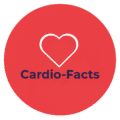
Hidden cardiovascular risk is a growing concern in preventive cardiology. While cholesterol remains important, it no longer tells the whole story. For years, cholesterol has been the dominant factor in assessing heart health. But modern science is uncovering a more complex reality: chronic inflammation, genetic risk, and micronutrient imbalances may expose hidden cardiovascular threats—even in people with “normal” cholesterol levels.
🔥 Inflammation: The Silent Driver of Atherosclerosis
One of the biggest breakthroughs in cardiovascular medicine is recognizing that atherosclerosis is not just a lipid disorder—it’s a chronic inflammatory disease.
What is hs-CRP?
High-sensitivity C-reactive protein (hs-CRP) is a marker of low-grade inflammation. Unlike standard CRP tests used for infections, hs-CRP detects subtle inflammation that can silently promote plaque buildup in arteries.
- People with normal LDL but elevated hs-CRP have significantly increased cardiovascular risk.
- The landmark JUPITER trial showed that in individuals with normal LDL but hs-CRP ≥ 2 mg/L, rosuvastatin reduced major CV events by 44%. → Read the full article in NEJM
This study marked a turning point: inflammation became a therapeutic target, independent of cholesterol.
🧬 Genetic Risk Scores: Your DNA Still Counts
Why do some people experience heart attacks despite excellent lipid levels? The answer often lies in their genes.
Polygenic Risk Scores (PRS) combine information from multiple genetic variants associated with heart disease. They can:
- Identify people with high lifetime cardiovascular risk—even if their current lab values are normal.
- Support early, tailored prevention (e.g., earlier statin use or lifestyle changes).
Real-world impact:
A 2016 study by Khera et al. showed that individuals in the highest genetic risk quintile had over 90% higher risk of coronary artery disease, regardless of other factors.
🧪 Micronutrients: Small Deficiencies, Big Impact
Micronutrients like magnesium, vitamin D, and omega-3 fatty acids play subtle but essential roles in cardiovascular health. While not direct causes, imbalances can:
- Promote oxidative stress and endothelial dysfunction
- Impair immune regulation and worsen chronic inflammation
- Increase arrhythmia risk (especially with low magnesium or potassium)
Though not yet part of routine screening, research suggests that low vitamin D or omega-3 levels are associated with increased CV risk and all-cause mortality.
🧠 What Traditional Risk Scores Miss
Classic calculators like Framingham or SCORE2 focus on age, sex, lipids, blood pressure, and smoking. But they often miss hidden risk:
- Someone with normal cholesterol but elevated hs-CRP or high genetic risk might be labeled “low risk”—yet still suffer an early heart attack.
- These are examples of residual risk: threats that lie beyond traditional markers.
Why This Matters for Prevention
Traditional approaches may miss early signs of cardiovascular disease. Identifying hidden cardiovascular risk allows doctors to intervene sooner, especially in patients who look “low risk” on paper. This is particularly relevant in primary prevention, where silent inflammation or genetic predisposition can go unnoticed until a major event occurs.
🩺 What You Can Do
These advanced tests aren’t for everyone. But if you’re in a borderline-risk category or have strong family history, they might be worth discussing with your doctor:
- hs-CRP testing for intermediate-risk individuals
- Genetic screening if there’s a family history of early cardiovascular disease
- Micronutrient evaluation in the context of inflammation, fatigue, or metabolic disease
💡 Takeaway
Today’s cardiology goes beyond cholesterol. Inflammation, genetics, and micronutrient status offer deeper insight into cardiovascular health—and can help prevent events in those who may otherwise be overlooked.
Welcome to the era of personalized prevention.
References & Scientific Sources
- Ridker PM et al. Rosuvastatin to Prevent Vascular Events in Men and Women with Elevated C-Reactive Protein. New England Journal of Medicine, 2008
- Khera AV et al. Genetic Risk, Adherence to a Healthy Lifestyle, and Coronary Disease. New England Journal of Medicine, 2016 – PubMed
📩 Stay informed & get your free gift!
Join our free newsletter for exclusive heart health updates and get instant access to the PDF guide “7 Proven Tips to Protect Your Heart After 40.”
⚠️ Disclaimer: The content on Cardio-Facts is for informational and educational purposes only and does not constitute medical advice. Always consult a qualified healthcare professional regarding your health. Read our full disclaimer and legal policies.
